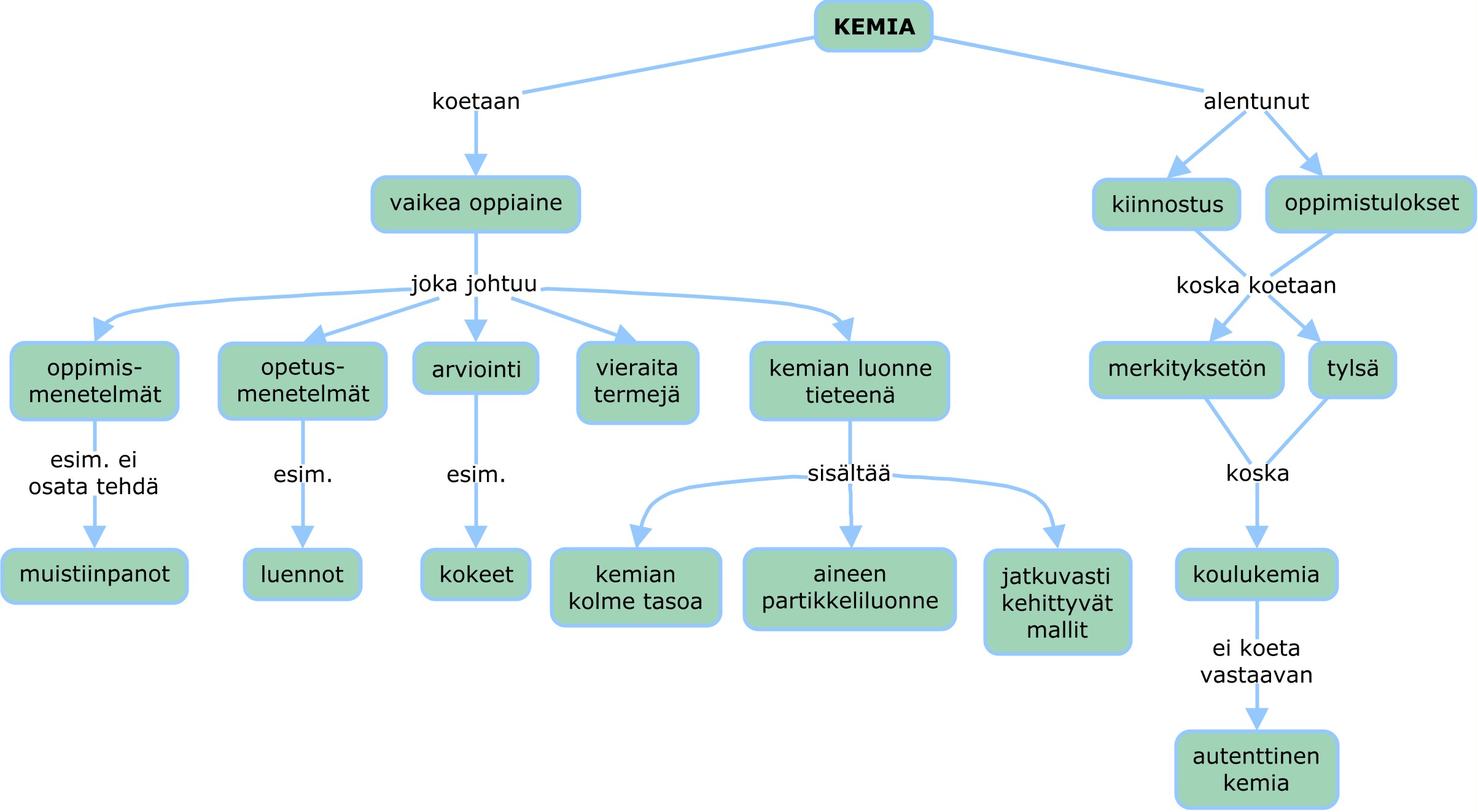Why chemistry is a difficult subject?
Keywords:
philosophy of chemistry, tentative nature of scientific theories, atomic modelsAbstract
Editor's comments
Chemistry as a field is in a challenging situation. Chemistry is perceived as a difficult subject and young people are not interested in studying chemistry. This has led to a decline in learning outcomes and a reduction in student enrolment. The situation is a critical and important research topic for chemistry education research.
According to research, the challenging situation is due to the teaching and learning methods used, the unfamiliar chemistry terms, and the complex structure of chemical knowledge. In chemistry, information can be presented simultaneously at three different levels: macro, symbolic, and sub-microscopic levels. The model is called the famous Johnston Triangle, which will be explored later in this number.
The sub-microscopic level cannot be seen with the eyes, so it is modelled and visualized, e.g. via information and communication technology (ICT). Sub-microscopic level visualizations support molecular level understanding, which is central to learning chemistry. In chemistry teaching technology research, this use is often used to justify the importance of the topic in the introduction to the research articles.
This can be cited using classics such as Dorothy Gabel's 1999 "Improving Teaching and Learning through Chemistry Education Research: A Look to the Future" or Johnstone's (1982, 1991, 1993) original articles. If those publications are not available due to payment walls, the following article by Cardellini (2012) can be used as an open access replacement.
Article details
Article: Cardellini, L. (2012). Chemistry: Why the Subject is Difficult? Educación Química, 23, 305–310. https://doi.org/10.1016/S0187-893X(17)30158-1
Citations: Google Scholar
License: CC BY-NC-ND





